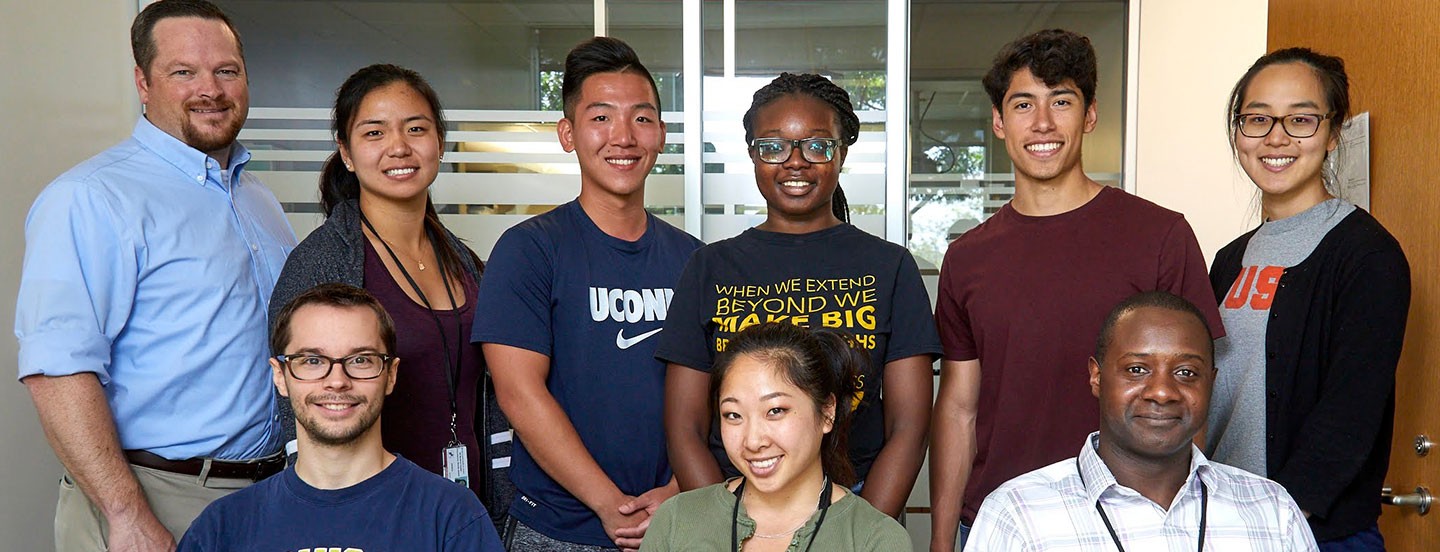
Mentoring During the First Week
Previously: Mentoring During the Summer Program
As a research mentor, you will need to bring your mentee up to speed both on the project on which they will be working as well as the larger research context into which it fits if you have not already done so. Effective mentors connect the research they have a mentee working on to the broader goals of their research agenda and how that contributes to the overall field. This conversation should continue through regular meetings to review work progress as your mentee’s understanding of the broader significance grows over the course of the summer.
We have learned over more than two decades of mentoring diverse undergraduates that making your student feel like they are a part of your research community is vital to a quality research experience (Hurtado et al., 2007). In the first week, take time to help your mentee get to know anyone else working directly on the project, members of your department, and any administrators with whom you regularly work. Your goal should be to help your mentee make as many connections with people in your research community as you can. Your mentee will learn best when they have the chance to encounter multiple, diverse perspectives within a research community. Doing so is even more important in the context of social distancing. Remember that, this summer, your mentee will not have the opportunity to physically be on campus, use a workspace in your department or elsewhere on campus, or get to explore your university’s environs. The best way you can compensate for that is by brokering get-to-know-you’s between your mentee and other members of your research community. When doing so, emphasizing the importance of explicitly welcoming your mentee into that community will go a long way.
Use the first week to explain the project, the relevant background literature and how to review it, and key techniques they will be using while working on your research material. Place the project your mentee will be working on in the context of your larger research efforts. Also place your research efforts in the context of larger, open research questions. Make sure to connect their contributions to that constellation of knowledge accumulation. Give them a task for the first week that is discrete, achievable, and allows your mentee to practice key techniques or approaches. Such a task will give you two a chance to calibrate the mentee’s day-to-day work in light of the demands of the project and their existing skill set.
If your mentee will be working with a larger research team, be sure to explain each of the roles of the team members to your mentee. Have a team meeting in which everyone can get to know your mentee and during which you go over the key elements of the team’s research efforts, each member’s role, and how they contribute to your desired research outcomes. Use various methods to assess your mentee’s understanding from asking open-ended questions, to having them convey ideas back to you, to illustrating ideas or even teaching another student something they have learned.
Action Items and Additional Resources
Action Items:
- Have a 1:1 virtual welcome event (i.e. a Zoom luncheon or coffee hour)
- Host a “lab ice-breaker” event (Here and here and here are some virtual ice breaker ideas)
- Help the mentee make connections – invite key personnel that the student will be working with to the virtual welcome event and/or the lab ice breaker
Additional Resources
The Mentor/Mentee Contract/Compact
Dr. Natalie Strobach, Assistant Dean of Undergraduate Research, Krieger School of Arts and Sciences, Johns Hopkins University
To start your relationship with your mentee off on the right foot, the two of you need mutually understood goals and expectations. A contract between you and your mentee, customized to the expectations for the relationship and your mentee’s project, is a good way to achieve that understanding. This document should include both what the mentee can expect from you (e.g., how often you will meet, what type of support you can offer) and what you will expect from them. Perhaps most importantly, completing and customizing the contract should require you and the mentee to work together to set project deadlines and timetables. For many undergraduates, the summer research experience is the most independently-driven research they will have undertaken; having expectations clearly articulated and laid out in advance will make both of your lives less stressful.
For examples of mentor/mentee compacts, visit the Institute for Clinical and Translational Research at the University of Wisconsin-Madison.
Best Practice: The Global Meeting
Dr. Carlos Aizenman, Professor of Neuroscience, Brown University
When someone new is coming on board, it’s good to step back and say, “here’s what we’re doing, here are the different projects, and here’s everybody’s role.” Then everybody knows exactly what everybody else is doing, there are no surprises, and everybody knows how their piece might fit into the bigger project. When you’re doing a PhD, you own the project and are the project manager. But for other projects where you are a summer trainee or an undergrad, obviously, that has to be part of a larger effort. You have to be given a global picture to understand what’s going on with that larger effort. It also helps students become better at understanding the picture of why they’re doing what they’re doing. If you ask an undergrad what their project is, they will give you a very literal description of what they’re doing without much context. For example, “I am testing to see if these cells have sodium currents.” These descriptions leave out the “why.” Global overviews can help them understand and articulate the “why,” which is a necessary part of becoming a scholar.
Up next: Establishing Durable and Open Lines of Communication